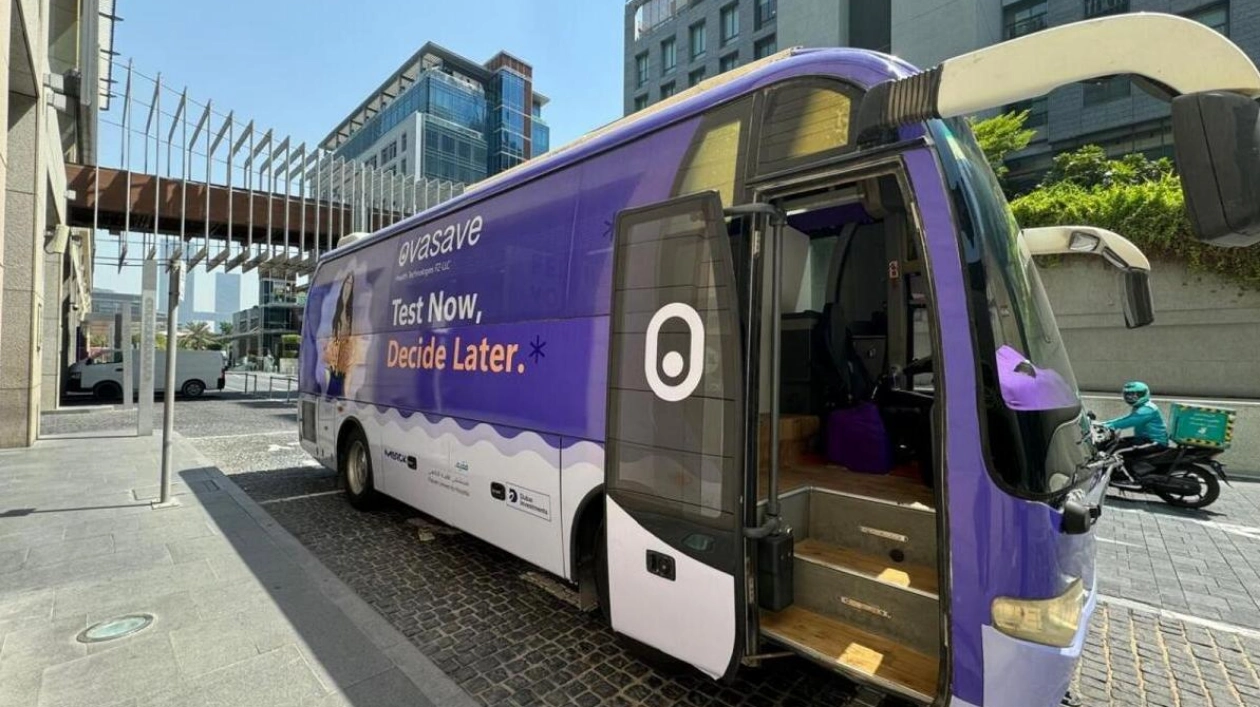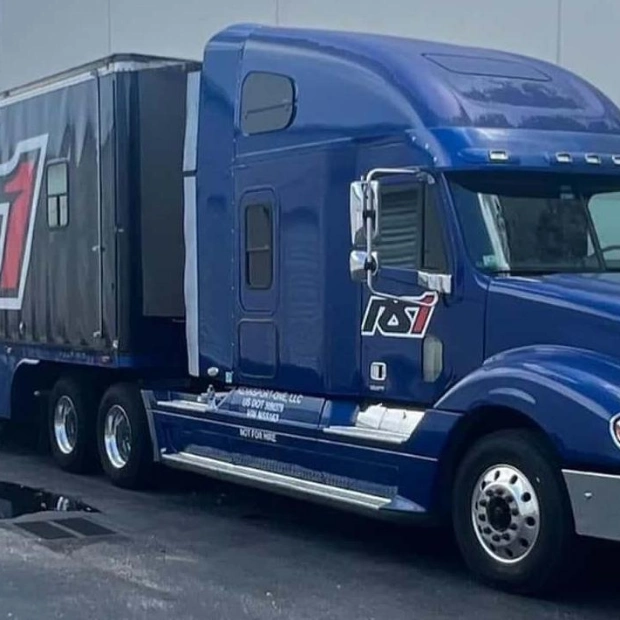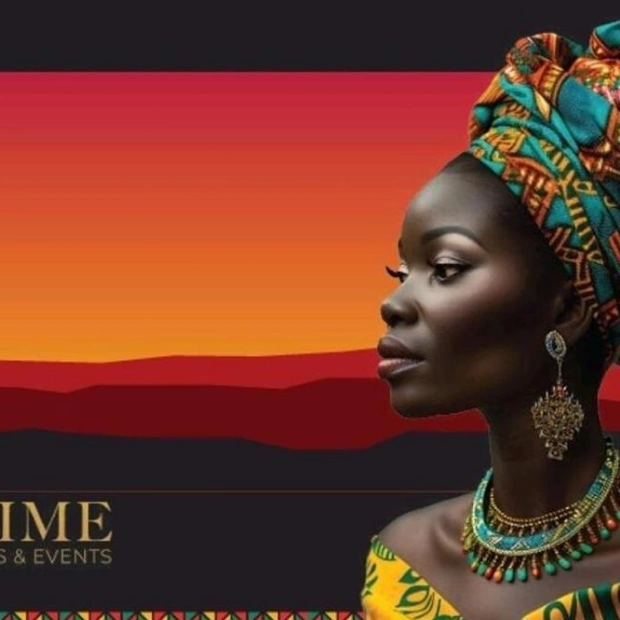A distinctive initiative by a local firm aimed at empowering women to take control of their fertility has garnered an overwhelming response. On the inaugural day, FemTech firm Ovasave saw over 300 women visit its purple-hued 'fertility bus' stationed at the Central Park towers in Dubai. “We exhausted our supply of test kits and had to request women to return on another day,” stated Torkia Mahloul, co-founder of Ovasave. “This underscores the desire among women to gain more knowledge about their fertility.” The two-week campaign will see the company’s fertility bus traverse various locations in Dubai and Abu Dhabi, distributing complimentary 5-minute Anti-Müllerian Hormone (AMH) test kits valued at Dh350. These tests will furnish women with data on their egg reserve, providing them with insights to protect their future fertility. Among other sites, the bus will be stationed at Etihad HQ, Abu Dhabi Global Market, Alserkal Avenue, and Dubai Media City.
One woman who attended the campaign’s location at Dubai International Financial Centre (DIFC) on Tuesday revealed that she had been contemplating fertility testing since she first heard about it. “A friend of mine froze her eggs last year,” she said, declining to disclose her name. “We are both in our late 30s and have demanding careers. I have yet to find a partner but aspire to have children at some point in the future. Since she took that step, I’ve been considering getting tested but kept postponing it.” Torkia noted that one of the company’s goals was to alleviate this concern. “Few people consider getting their fertility tested,” she said. “Moreover, it is an expensive procedure not covered by insurance. A fertility test and doctor consultation could collectively cost up to Dh1,000. We aimed to create a product that is easily accessible to women and can be conducted from their homes at a modest cost of just Dh350, which also includes a teleconsultation with a doctor to interpret the results.”
For Torkia, the concept of the company stemmed from her personal experience of undergoing fertility testing at the age of 34. “I was stunned when informed that if I did not plan to have a child within the next year, it would be advisable to freeze my eggs,” she recounted. “It was the first time I received such information. I had observed women having children in their 40s and assumed it was a natural process.” She underwent several rounds of egg freezing and expressed her greatest regret was not doing it earlier. “Had I done it in my late 20s, I might have required only one round of freezing,” she reflected. “When I discussed this with women around me, I realized I was not alone in my ignorance. There was a significant gap in the education and awareness about fertility. There is also a stigma attached to it, where no one openly discusses it.”
These factors inspired Torkia to collaborate with fertility specialist Majd Abu Zant to establish Ovasave. “I have a tech background, and Majd boasts over twenty years of experience in women’s fertility,” she explained. “This is how we launched our service.” Majd elucidated how, over time, the number and quality of women's eggs diminish. “Women are born with a million eggs, but by the age of 37, only 25,000 remain. Even those are not of optimal quality. Therefore, women should be aware of the age of their eggs and begin taking charge of their fertility early.” Torkia emphasized that their objective with the campaign is to eliminate the stigma associated with women’s health topics. Following the tests, the company connects the women with fertility doctors and other experts to guide them through their journey.






